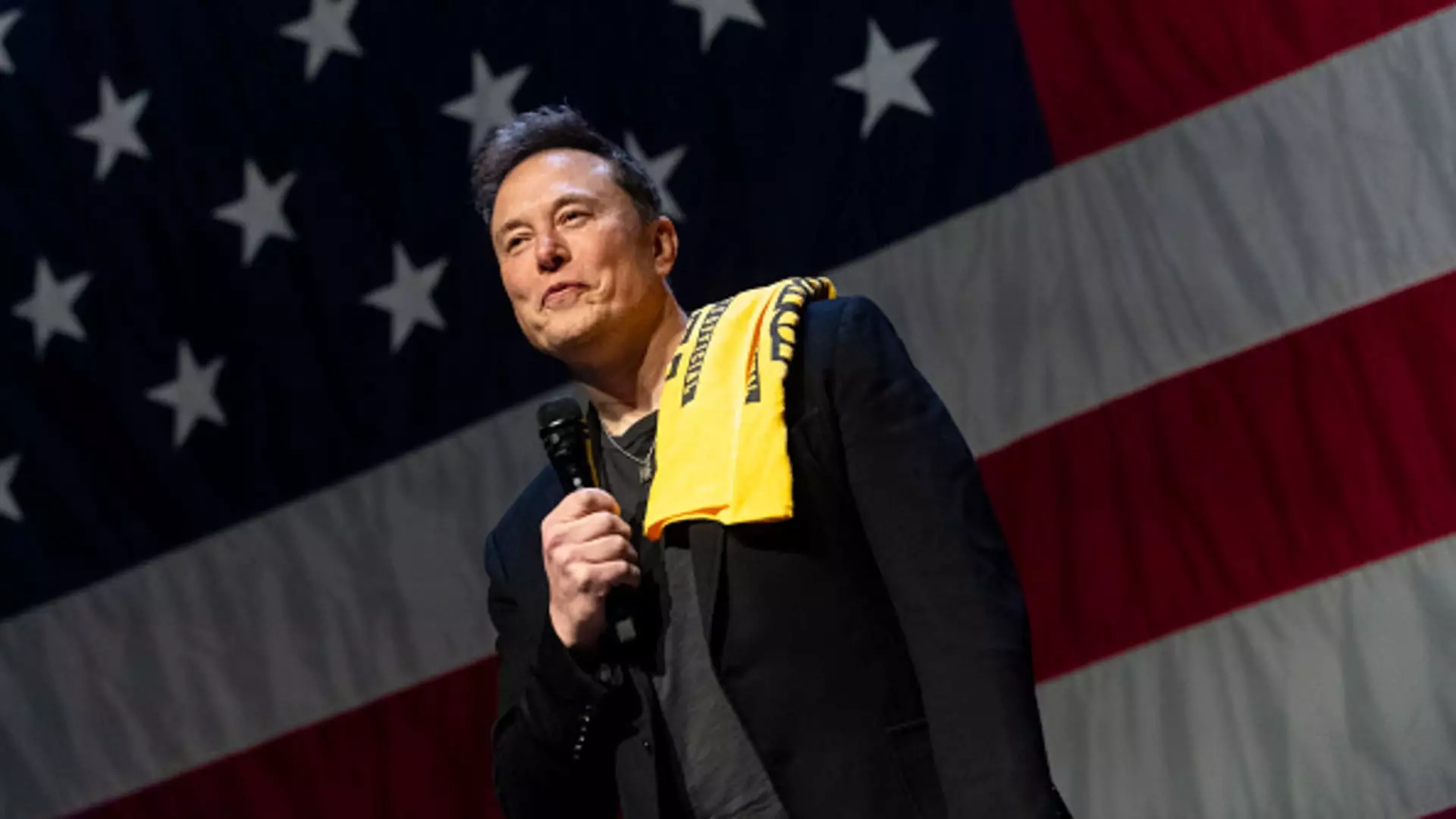The recent legal skirmish involving Elon Musk, the outspoken CEO of Tesla and SpaceX, has drawn considerable attention, particularly as he stands accused of undermining the electoral process with his controversial $1 million giveaway to voters in swing states. The Philadelphia District Attorney’s office has formally filed a lawsuit against Musk and his political action committee, America PAC, claiming that the financial incentives amount to an illegal lottery masquerading as an electoral strategy. This high-stakes litigation will initially unfold in federal court in Pennsylvania, although Lawrence Krasner, the Philadelphia District Attorney, is eager to shift the proceedings back to the state court where the lawsuit originated.
Shifting Legal Grounds
At the heart of the legal dispute lies the question of jurisdiction. According to John Summers, a lawyer representing Krasner, the intention is to remove the case from federal court back to its original venue in the Court of Common Pleas. Summers has indicated that while they will begin in federal court, the ultimate goal remains to allow the state court to address the matter. This duality of court involvement complicates the proceedings, as the same issue will be examined under varying legal frameworks, which could lead to inconsistent interpretations of the law.
The lawsuit alleges that Musk’s actions contravene not just state law regarding lotteries and consumer protection, but also federal regulations concerning electoral interference. In response to these allegations, Musk’s legal team argues that America PAC operates under federal jurisdiction, thereby exempting its activities from state law. The complexities of federal versus state jurisdiction pose a significant hurdle in the case, potentially delaying any immediate legal remedy sought by Krasner’s office.
Critics of Musk and America PAC express concern that the $1 million giveaway creates a conflict of interest in the political arena. The DA’s lawsuit highlights that this scheme could entice voters in upcoming elections between prominent figures like Kamala Harris and Donald Trump, raising ethical questions regarding the integrity of the electoral process. Musk’s political contributions, especially his open support for Trump, compound these concerns as they lend weight to the argument that his motivations may be less than altruistic.
Krasner, in his filings, has argued that Musk’s actions could effectively manipulate voter behavior by offering substantial monetary incentives in exchange for personal information and political pledges. The notion of a “lottery” embedded within a political context creates a precarious situation where ethical and legal lines become blurred, potentially leading to voter disenfranchisement or coercion. This particular aspect of the case underscores the delicate interplay between political expression and ethical conduct in electioneering efforts.
The costs of public exposure are further amplified by recent events where Krasner’s personal security was compromised due to antisemitic actions by Musk’s social media followers. The DA’s legal team cited these security concerns in their briefings, arguing that such threats not only endanger Krasner’s safety but also inhibit an open legal discourse. The digital arena’s capacity to escalate tensions is a disturbing trend that legal institutions may increasingly need to address as they grapple with cases intertwining technology, politics, and personal security.
Moreover, the increasing commodification of political support through financial incentives raises significant questions about the ethics of campaign financing and voter engagement. If such practices are left unchecked, they could foster a paradigm where elections become less about ideas and more about transactional relationships founded on monetary gain.
Looking Ahead: Implications for the Electoral Process
As this legal drama unfolds, the implications extend far beyond that of a single lawsuit. The case serves as a crucial flashpoint in understanding how modern political campaigns incorporate technology and financial incentives in innovative yet controversial ways. The outcome may set a precedent that influences not only Musk’s future endeavors but also the broader electoral landscape in the United States.
As the legal tug-of-war continues, stakeholders in both the political and legal ecosystems will be watching closely. How the courts interpret these substantial issues could very well redefine not only the legality of such campaigns but also the ethical boundaries of political behavior moving forward. For now, the status of Musk’s giveaway remains uncertain, but its ripple effects are certain to prompt deeper discussions about the relationship between money, politics, and democratic integrity in America.



Leave a Reply